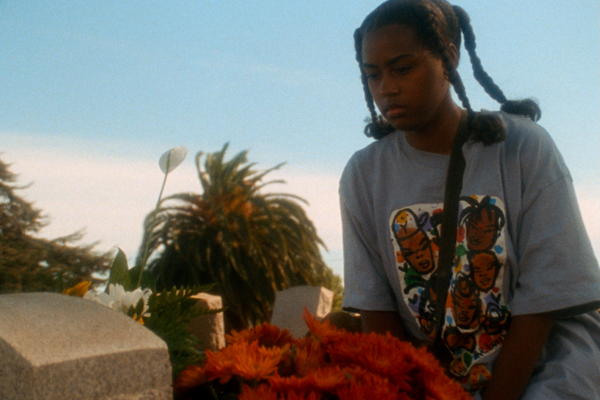
‘Drylongso’ brings the racism of 1998 West Oakland to vivid life
By Diane Carson
From 1994 to 1998, while in UCLA’s School of Film, Cauleen Smith began work on “Drylongso,” her debut feature completed in 1998 after earning her MFA. As co-writer, director, producer, and editor, Smith demonstrates impressive do-it-yourself credentials, as “Drylongso’s” content electrifies the narrative in its prescient, substantive social critique. Its calm, sensitive presentation enhances its lasting impact.
Living in her mother’s and grandmother’s busy home, Pica Sullivan, a young Black woman, confronts her college professor (Salim Akil, co-writer) regarding his 35-mm photography assignment and his naïve attitudes. Pica has chosen to shoot Polaroids of West Oakland’s young Black men, an endangered species, as she describes them. Rattling off statistics still sadly relevant today, she notes unemployment, drug convictions, illiteracy, homicides, and life expectancy numbers. Pica asserts, “I’m capturing and preserving their images, some kind of evidence of existence.” Enhancing that, Pica builds outdoor memorial installations to the victims.
Events expand on Pica’s commentary through subplots: a serial killer of young Black women and men, a cross-dressing Tobi sick of physical abuse and donning male disguise, Pica’s budding romance with endangered young Black Malik who designs and sells handsome t-shirts, and an unhinged street woman who rants about the Pica’s art. In recent press notes, director Smith says, “I’ve accepted that the power of cinema is the power of manipulation—to sway, convince, seduce, even subvert. Ethics is what I’m interested in.”
Shot over twenty-two days in Oakland twenty five years ago, featuring a terrific Toby Smith as Pica, “Drylongso” lacks technical polish but shines as a heartfelt, uplifting call to, at long last, topple the racism on display. The title comes from a Gullah word meaning “ordinary.” Would that the friendship, mutual support, and kindness on display here became, indeed, drylongso. “Drylongso” screens at Webster University’s Winifred Moore auditorium Wednesday, May 31, and Thursday, June 1, at 7:30 each evening. For more information, you may visit the film series website.


